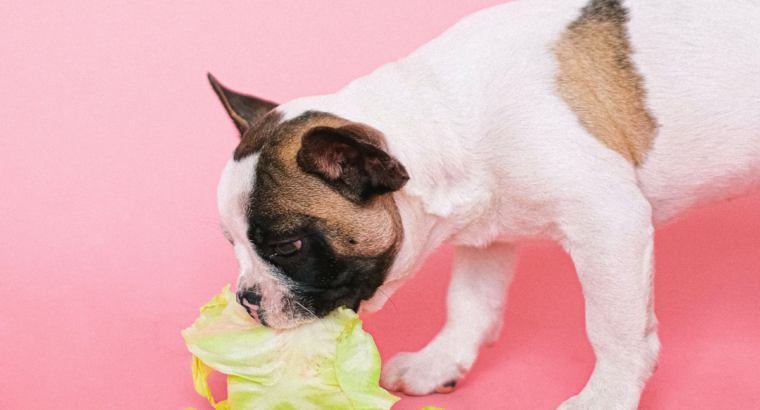French Bulldog Diet And Nutrition
Meet the French Bulldog, a very popular little tyke. In fact, not only are they the most popular small breed in America, they are the most popular bully breed.
And while for years, they sat at the number four spot on AKC’s most popular breed list, since 2021, they have become the second most popular dog breed in America, with only the Labrador Retriever being more popular.
Some of the big reasons the French Bulldog is so popular are thanks to their low-maintenance coat, mild exercise needs, and gentle nature. However, Frenchies can be a little more work when it comes to their diet. They might be tiny, but they have a mighty appetite, and special care should be given when selecting the best diet and nutrition for them.
An unbalanced diet not only leads to problems such as skin and coat issues but can also cut their life short due to obesity and other health risks. But with a little care, you can set your Frenchie’s diet and nutrition up for a lifetime of success and great health.
When Food Isn’t Enough
Sometimes, even when you’re giving your dog proper and well-balanced dog food while keeping snacks and treats to a minimum, some dogs require a little more TLC for optimal health and nutrition.
French Bulldogs, in particular, often struggle with allergies, both airborne and the ones relating food intolerances.
As well they see higher rates of hypothyroidism than your average dog breed, which causes low energy that can promote obesity.
Your veterinarian should always be your go-to when you have concerns about your dog’s diet. Giving our dogs supplements similar to the ones we take for their health is becoming incredibly common.
This includes inflammatory aids like fish oil and mobility support supplements, as well as wellness supplements like hemp CBD oil and multivitamins and protective aids such as brewers yeast and garlic for dogs.
Always feel free to mention these supplements with your vet when discussing your dog’s nutritional concerns.
Nutritional Needs
As with all dogs, a minimum amount of protein and fat should be included in the food you decide to give your Frenchie. Merck Veterinary Manual recommends a minimum of 18% protein and 5% fat in an adult dog’s diet.
Because the French Bulldog isn’t the most athletic dog, to put it mildly, dog foods with significantly more protein aren’t required for him.
However, you want to ensure their protein comes from high-quality animal protein from poultry, meat, and fish.
The biggest issue many French Bulldog owners struggle with is knowing just how much food to give their pup.
While a low-energy dog breed, smaller dogs have faster metabolisms than large breeds, meaning they require more food per pound of body weight, but their low energy puts them at risk for obesity.
Always check the recommended feeding amounts on your dog food label to know how much to feed. If feeding raw, experts suggest that French Bulldogs receive 25 and 35 calories per pound of body weight per day.
What To Look for in the Best Dog Food for French Bulldogs
- Wholesome ingredients
- No by-products, fillers, or artificial additives
- Moderate-to-high protein; low-to-moderate fat
- Moderate amounts of complex carbs for blood sugar stabilization
- Includes a balanced ratio of omega-3 and 6 fatty acids
- Satisfies AAFCO nutrient profile recommendations
- Formulated for small dogs, e.g., smaller kibble size, greater caloric density, etc.
- Moderate caloric density; high density is fine but can quickly lead to undesired weight gain.
Canned, Kibble, or Raw
All dog owners have a few different options for choosing the food they want to feed their puppies. While all have their pros and cons, and there is no clear winner, kibble is going to be the best option for most dog owners.
A well-formulated kibble diet provides your dog with everything they need while also being the most inexpensive option and easiest to deal with.
Not only do they have the longest shelf-life, proper portion control, so your pup isn’t getting too many calories, is very easy.
Unless otherwise recommended by your veterinarian, a grain-free kibble diet is unlikely to give them additional benefits — grain allergies are very uncommon in dogs.
In fact, there are some concerns over grain-free diets due to some lacking taurine, which can lead to a deficiency of this vital amino acid that supports nerve growth.
If your Frenchie is having digestive issues, talking to your vet about their food over concerns that it may be exacerbating said issues is a great idea.
In recent years, giving our dog probiotics for digestive issues has become incredibly common, which can also help with anxiety issues and bad breath.
Canned foods are also fantastic and are great for pups that may need a little more TLC in their diet, thanks to the extra water and protein content typically found in canned dog food.
Unlike most kibbles, canned or wet foods are often extremely calorically dense and can be difficult to portion properly. For this reason, we generally recommend kibble before canned foods for French Bulldogs.
The last option dog owners have for feeding their Frenchies is making their food for them at home — often called a raw diet. While a raw diet can be just as good as the other two options, it really isn’t better than kibble or canned dog food that has been properly formulated.
In fact, between concerns over bacteria contamination and errors that are easy to make when putting together a well-balanced raw diet, experts are fairly aligned in their stance against raw diets.
Final Words
The French Bulldog is one incredible dog, and with a little care, giving them an optimal diet isn’t as tricky as many think. Remember to select a dog food brand for their size and needs and watch their waistline!
